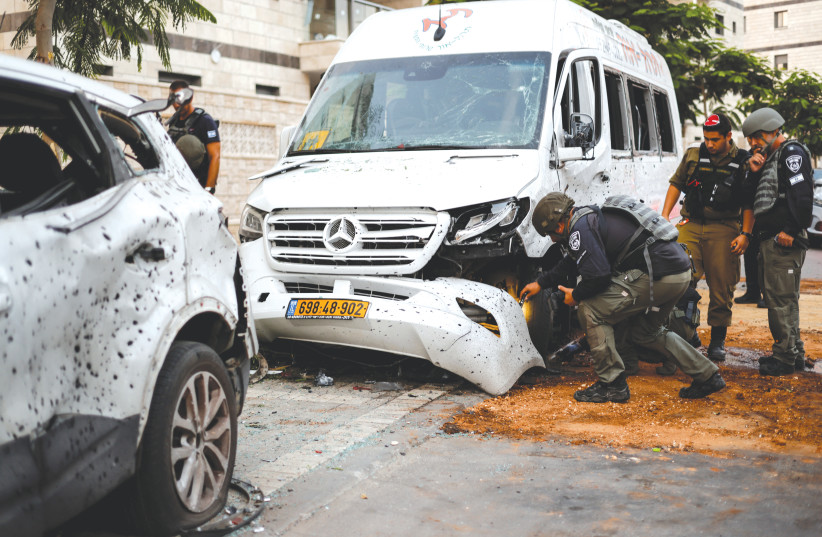The recent Gaza operation showed many of us that the situation can be run differently.
Unlike the previous round of escalation – Operation Guardian of the Walls in May 2021 – this time it was short, precise and it seemed to be in control.
The 2021 operation was a failure in many aspects: First, it seemed that it caught Israel by surprise. Despite Hamas’s warnings, the public didn’t expect such heavy bombardments on its cities. It also seemed the government was reacting at the time more than it was initiating and that the Gaza-based terrorist organization was setting the pace.
Another sharp contrast between this round to the previous one was the information delivered to the public. In 2021, the nation was in the dark for most of the operation regarding its goals and achievements. One of the most memorable moments was when Arabic media already had news of a ceasefire agreement, while the Israeli public was still confused and the government was silent.
In Breaking Dawn, the government and the army were transparent regarding the goal – eliminating the senior military leadership of Islamic Jihad in the West Bank and Gaza, and making sure that the messages were delivered through the media to the public.
One other major success was the Iron Dome, which, according to the IDF, managed to intercept 96% of the incoming rockets.

Human resilience
But there’s another aspect, which was thoroughly discussed but might have truly been the biggest element in this campaign, and that is the resilience of the residents of the South.
It’s not that in Guardian of the Walls the residents were not resilient. But during this round, the effectiveness of this resilience had a direct impact on its results.
Almost all of the rockets in the recent operation were fired toward the South, mainly at the small Gaza border communities and Sderot, Netivot and Ashkelon. The residents of this area were the target, and their adherence to the Home Front Command rules (staying in shelters when told and entering them on time when the sirens went off) saved lives. This discipline meant, essentially, that they had to put their lives on hold and be, all the time, close to shelters.
By doing this, the residents allowed the military to work freely, without any other consideration and public pressure to retaliate. It also helped the government make level-headed decisions, without being dragged into a long cycle of bombardments, which could have cost many lives and led to more anarchy on the streets of mixed Jewish-Arab cities like in May 2021.
The absurdity is that some of the residents of the South, who are on the front lines, still do not have shelter or a safe room to protect them from rockets.
Some 40,000 residents of approximately 12,000 housing units in Ashkelon don’t have access to shelters at all. Most of them are in the low socioeconomic class neighborhoods and in old buildings.
The plan and its foil
Last March, after almost a decade of cyclical escalation rounds, the government finally decided to move forward with a plan to provide shelters for these residents, and NIS 320 million was appropriated for this plan.
What’s holding it up? You guessed right – politics.
The Knesset’s Arrangements Committee, which is a joint coalition-opposition panel in charge of making the schedule for the parliament’s committees during the election period, did not reach a compromise on when the Finance Committee will meet. The approval of the committee is needed to budget the organization that will deliver the NIS 320m. to residents.
Another cause of this situation as described in the media were ego battles between the Finance and Housing ministries.
This question must be asked: Is this the time for a battle of egos?
Do the politicians feel no shame that the residents of the South are exposed to danger because of their egos and pettiness?
Instead of being rewarded for helping the army and government achieve the operation’s goals, they get spit on.
It’s time for change and for the politicians – from across the political spectrum – to get hold of themselves and convene the committee today.
These heroes of Israel’s South deserve more.
